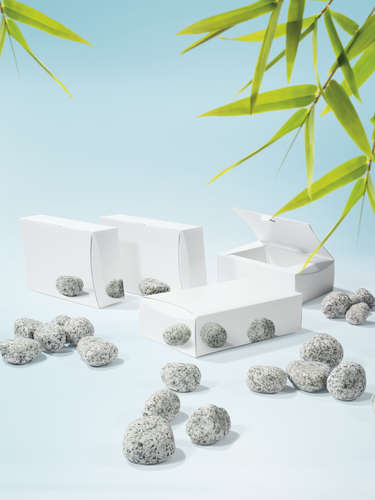 New research, conducted for M-real Consumer Packaging, has found that within the same grade (brand), the carbon footprint of a cartonboard reduces at least in proportion to its basis weight. A 15% reduction in board weight equates to a 18% reduction in carbon footprint, which is important to users concerned about sustainability. If they can specify a lighter weight board, provided all criteria regarding stiffness and performance are met, their own carbon footprint will diminish accordingly.
New research, conducted for M-real Consumer Packaging, has found that within the same grade (brand), the carbon footprint of a cartonboard reduces at least in proportion to its basis weight. A 15% reduction in board weight equates to a 18% reduction in carbon footprint, which is important to users concerned about sustainability. If they can specify a lighter weight board, provided all criteria regarding stiffness and performance are met, their own carbon footprint will diminish accordingly.
For example, M-real has calculated that if you make 100,000 biscuit cartons using a 25 g/m2 lighter board, the CO2 saving per annum equals driving 1,000 km by car.
The research, commissioned from an external research institute, aimed to produce Life Cycle Assessments for three different weights of board. Carbon footprints were calculated for 10,000 biscuit cartons produced in 250, 270 and 295 g/m2 weights, to discover if the footprint would reduce proportionately when a lighter weight board was used.
Calculations assessed energy used in forestry, transport and manufacturing at all stages from harvesting the wood to making the cartons, including, for example, transporting the board to the customer.
Riikka Joukio, Vice President Marketing of M-real Consumer Packaging, says: “By making packaging more effective and less wasteful, sustainability goes hand in hand with cost savings, which can be achieved both by the choice of lightweighted materials and by a design that has the right impact.
“Packaging has a relatively small global warming potential in food products, when compared to other activities taking place in the production of a food product, most notably fertiliser and cultivation. At the same time, packaging’s importance in reducing food waste, which might otherwise rot down in landfill producing methane – a harmful greenhouse gas – is also well established. Up to 50% of food is wasted in developing countries, where food packaging is less common, compared to western countries where waste averages 2% and is mostly attributable to over-purchasing.”
For further information please contact M-real Consumer Packaging:
Ritva Mönkäre, Marketing Manager
Mobile +358 (0)50 598 7012
E-mail: ritva.monkare(at)m-real.com
